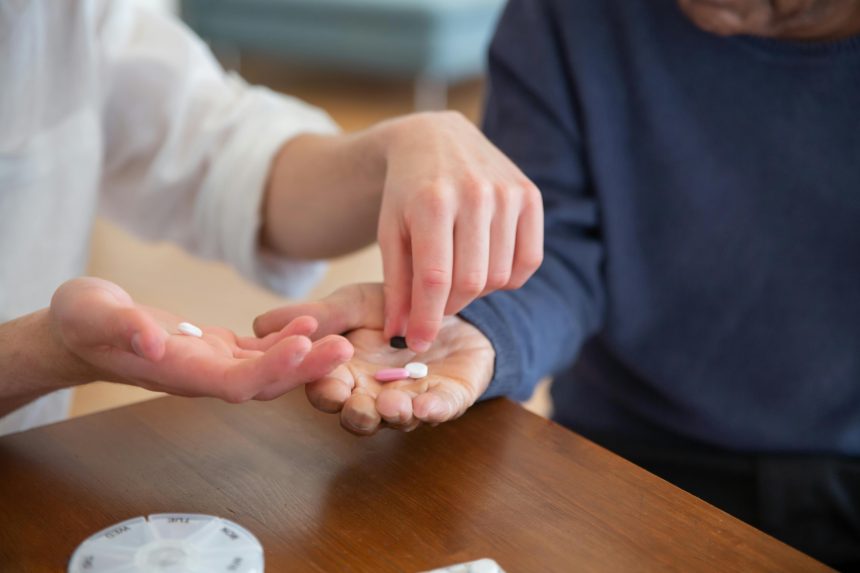Rehabilitation is the cornerstone of brain injury recovery, but medications often play an equally important role. While no drug can “cure” a brain injury or reverse the damage, medications are used to manage symptoms, prevent complications, and support overall recovery. They can help control pain, reduce seizures, stabilize mood, improve sleep, and enhance focus. For many survivors, the right combination of medications makes rehabilitation more effective and daily life more manageable.
Why Medications Are Used After Brain Injury
Brain injuries affect multiple systems in the body. Swelling, bleeding, or chemical changes in the brain can lead to seizures, mood disturbances, sleep disruption, or difficulty with concentration. Medications are prescribed to reduce these complications and to protect against further injury.
In the acute stage—immediately after an injury—doctors may use drugs to reduce pressure in the brain, prevent blood clots, or minimize further damage. In the long-term recovery phase, the focus shifts to treating ongoing symptoms such as depression, irritability, or memory difficulties.
Medications for Seizure Control
Seizures are a common complication after traumatic brain injury, especially in moderate to severe cases. Antiepileptic drugs such as levetiracetam, phenytoin, or valproic acid may be prescribed to reduce seizure risk. Some survivors only need seizure medication temporarily, while others require long-term treatment. Seizure control is crucial not only for safety but also because uncontrolled seizures can worsen cognitive function and delay recovery.
Medications for Mood and Behavior
Emotional changes are among the most difficult consequences of brain injury. Survivors may experience depression, anxiety, irritability, or sudden mood swings. Antidepressants, such as selective serotonin reuptake inhibitors (SSRIs), are commonly used to treat depression and anxiety. Mood stabilizers or antipsychotic medications may be prescribed for severe irritability, aggression, or impulsive behaviors that interfere with safety and relationships.
These medications are often combined with counseling or therapy, creating a comprehensive approach to emotional recovery.
Medications for Attention and Cognition
Some survivors struggle with attention, memory, or processing speed. In selected cases, doctors may prescribe stimulants or cognitive enhancers, such as methylphenidate or amantadine, to improve alertness and focus. Research in this area is ongoing, and not every patient benefits, but these medications can make it easier for survivors to participate in therapy and daily tasks.
Medications for Sleep Disorders
Sleep disturbances are common after brain injury, whether due to pain, anxiety, or changes in brain chemistry. Poor sleep worsens fatigue, memory problems, and mood swings, creating a cycle that hinders recovery. Doctors may recommend short-term use of sleep aids or medications that regulate sleep cycles. In many cases, medications are combined with behavioral strategies, such as improving sleep routines and managing nighttime stimulation.
Pain Management
Headaches and muscle pain frequently follow brain injury. Over-the-counter medications may help with mild pain, while stronger prescriptions are used for more severe cases. Doctors balance the need for pain relief with the risk of overuse, especially since some medications can cause rebound headaches or interact with other drugs.
Risks and Considerations
While medications provide important benefits, they also carry risks. Side effects such as drowsiness, dizziness, or changes in appetite can interfere with rehabilitation. Some drugs may interact with one another, especially since survivors often take multiple medications at once. Regular medical monitoring is essential to ensure that the benefits outweigh the risks.
Families should keep an updated list of all medications and share it with every healthcare provider involved in care. This reduces the chance of harmful drug interactions and ensures coordinated treatment.
The Role of Ongoing Medical Supervision
Medication management does not end when prescriptions are written. Doctors regularly review the effectiveness of medications, adjust dosages, and discontinue drugs that are no longer necessary. Survivors may notice that their needs change over time—some medications are only needed during early recovery, while others remain part of long-term management.
Close communication between patients, caregivers, and medical providers is key. Survivors should never stop or adjust medications without medical guidance, as sudden changes can trigger seizures, mood shifts, or other complications.
Conclusion
Medications are an important part of brain injury care. They do not heal the brain directly, but they help control seizures, stabilize mood, reduce pain, improve sleep, and support cognitive recovery. When combined with rehabilitation therapies, they allow survivors to participate more fully in the work of healing.
Careful supervision, regular monitoring, and open communication ensure that medications remain a safe and effective tool in the long journey of brain injury recovery.







